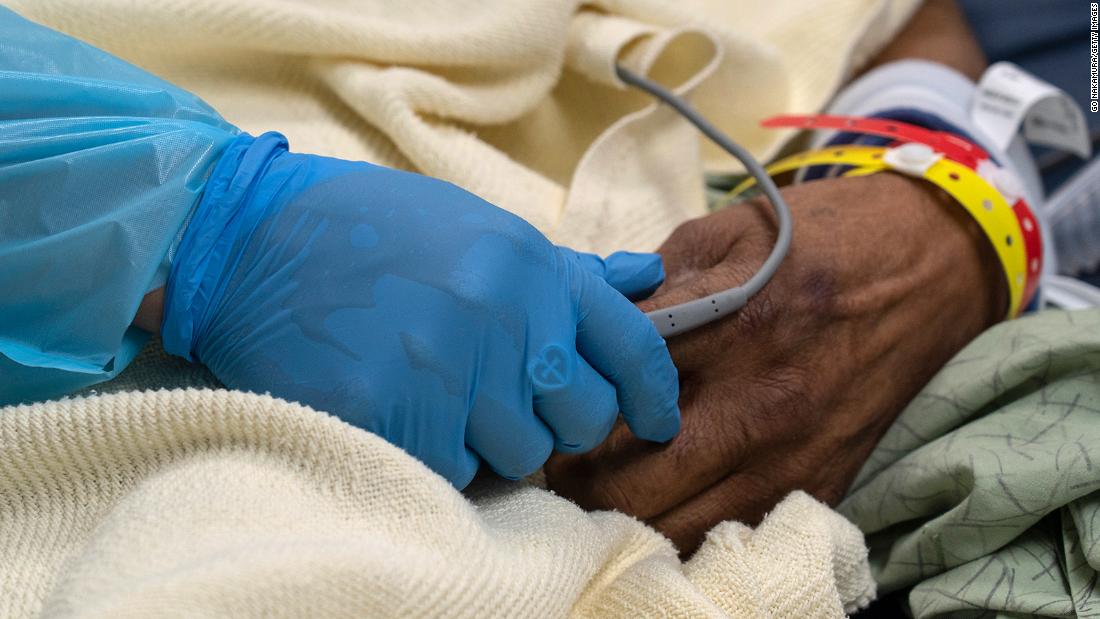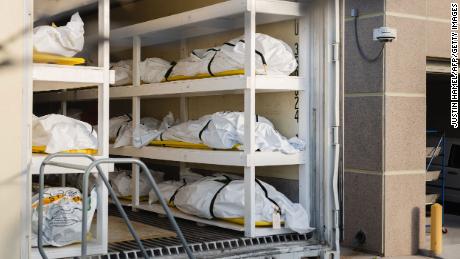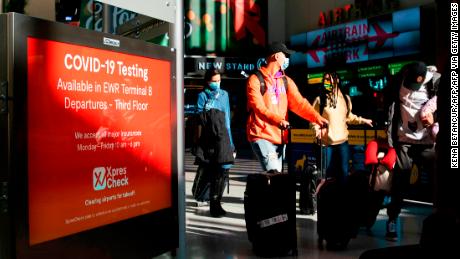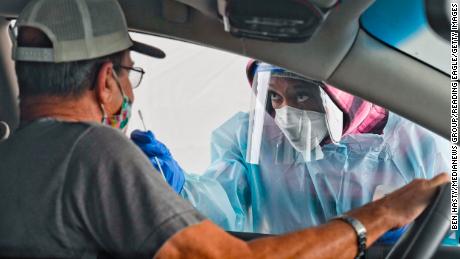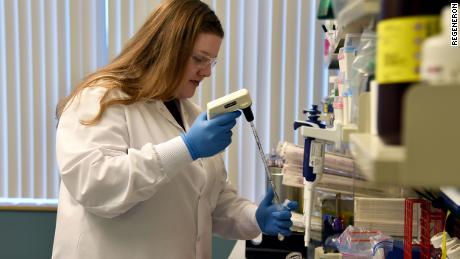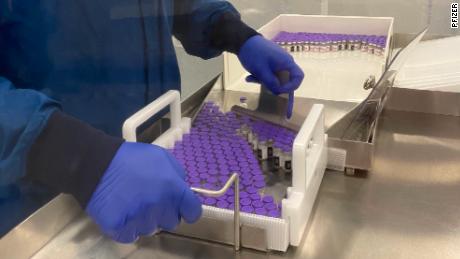3 million new Covid-19 infections were reported in November
More than 3 million new cases were reported between November 1 and 22, according to data from Johns Hopkins University. That’s about a quarter of all US cases since the beginning of this pandemic.
Yes, testing has increased. But it hasn’t kept pace with the rate of new infections.
As of late last week, the number of daily new cases increased 25% compared to the previous week, according to Johns Hopkins data.
But the number of new tests increased only 14.55%, according to the Covid Tracking Project.
“If a positivity rate is too high, that may indicate that the state is only testing the sickest patients who seek medical attention, and is not casting a wide enough net to know how much of the virus is spreading within its communities,” Johns Hopkins said.
And every surge in new cases leads to more hospitalizations and deaths in the following weeks.
Hospitals are getting overwhelmed
At least 83,227 Covid-19 patients were hospitalized Saturday, according to the Covid Tracking Project. That’s the 12th straight day that the US has broken its record for Covid-19 hospitalizations.
Health experts say new infections, hospitalizations and deaths will get worse before they get better, as the upcoming holidays and colder weather trigger more indoor socializing.
“Think about where spread of this virus happens. It is indoors, without masks, over long periods of time. And that’s exactly what Thanksgiving is,” emergency medicine physician Dr. Megan Ranney said.
“If even 1% of the 50 million people who are traveling for Thanksgiving transmit or catch this virus, we’re looking at an extra 500,000 cases across the country,” Ranney said.
“This is the year to stay home. If you must see people, do so only outdoors and at that safe distance. Because you just don’t know who’s infected.”
Why infections might be higher than we know
But the real case count is likely to be “multitudes” higher because there’s not enough testing, said Dr. Esther Choo, professor of emergency medicine at Oregon Health & Science University.
Choo said she’s especially concerned by how quickly new cases are accelerating.
“So many states have test positivity rates above 20%, which means that we are vastly lagging behind in our confirmed cases,” she said.
Of the remaining 44 states, several had test positivity rates of more than 40%: Wyoming, South Dakota, Iowa and Idaho.
The CDC urges Americans to stay home this Thanksgiving
With this unprecedented surge of Covid-19, the US Centers for Disease Control and Prevention warned against Thanksgiving travel and against celebrating with anyone outside your own household.
The safest way to enjoy a holiday meal with friends and family outside your household is to strictly quarantine for 14 days beforehand.
“If you do that properly, you don’t need a test,” said Dr. Rochelle Walensky, chief of the infectious diseases division at Massachusetts General Hospital.
Americans can now get Trump’s antibody treatment
It is one of the treatments President Donald Trump received when he was hospitalized.
“What we know is the sooner you receive this treatment, the better it is — for example, like (when) the president received it,” said Dr. Carlos del Rio, executive associate dean at Emory University School of Medicine.
“The reality is if you are over 65, if you have comorbid conditions like diabetes, obesity, or some other immunosuppression, and you get diagnosed with Covid-19, you should be considered for this therapy pretty much immediately. The sooner — within the first three to four days of getting diagnosed — is the best time to receive it,” del RIo said.
“The challenge, of course, is finding it, because it’s actually a limited supply.”
Vaccines are months away for most people
There’s more good news on the vaccine front.
The application came after early data showed the Pfizer/BioNTech vaccine was 95% effective, even in older adults, and caused no serious safety concerns.
While the application is “encouraging,” the Infectious Diseases Society of America stressed that a transparent review of Pfizer’s data is still needed.
“Measures that include wearing masks, frequent hand washing, maintaining physical distance and restricting the size of gatherings will remain crucial,” the Infectious Diseases Society of America said.
CNN’s Chuck Johnston, Hollie Silverman, Christina Maxouris, Claudia Dominguez, Jamie Gumbrecht, Jacqueline Howard and Lauren Mascarenhas contributed to this report.
![]()


